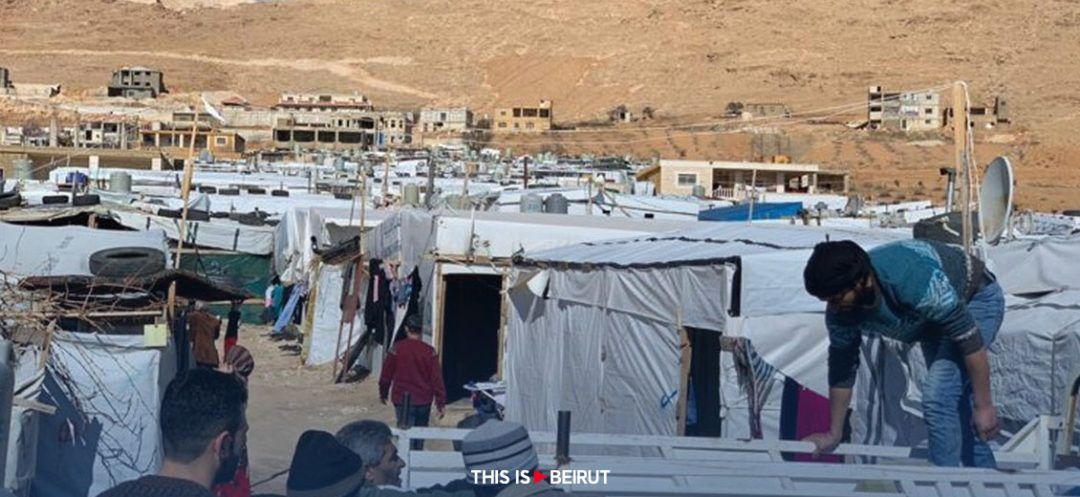
For the first time in years, a European Union official has raised the possibility of a "safe, voluntary and dignified" return home for displaced Syrians who have settled in Lebanon since 2011 – when the war in that country started – without linking it to a political solution in Syria.
The European policy regarding the return of Syrian refugees has always been conditioned by the stance that Syria was still “too dangerous for such a return to be envisioned.”
The return of Syrians refugees was at center stage for European Commissioner for Neighborhood and Enlargement Olivér Várhelyi, who called for “facilitating the safe, voluntary, and dignified return of Syrian refugees in cooperation with Lebanese authorities, the UNHCR, and IOM.”
"The European Council has made it very clear that, in close cooperation with the United Nations High Commissioner for Refugees (UNHCR) and the International Organization for Migration (IOM), the conditions for the safe, voluntary and dignified return of displaced Syrians must be created, in close cooperation with the Lebanese authorities, so that they can begin to return from Lebanon to Syria," said Várhelyi, after two meetings in Beirut with Speaker of the House of Representatives Nabih Berry, caretaker Prime Minister Najib Mikati, caretaker Minister of Foreign Affairs Abdallah Bouhabib and Army Commander General Joseph Aoun, in the presence of Sandra De Waele, EU Ambassador to Lebanon.
Mr. Várhelyi visited Beirut “following the meeting of the European Council on 17-18 April, where the European leaders recalled the European Union's strong support for Lebanon and the Lebanese people in the difficult circumstances the country is experiencing domestically and due to regional tensions,” according to a statement issued by the Delegation of the European Union to Lebanon. “The Commissioner’s mission aimed to lay the groundwork for restarting dialogue and identify areas of reinforced cooperation,” it added.
Speaking at a press conference held at the Grand Serail, Várhelyi emphasized the EU’s efforts “to stop irregular migration, strengthen border protection, and combat human trafficking and smuggling,” amidst the nation’s political, economic and social challenges.
This change in position comes after Cyprus appealed on April 3 for vigorous action from the EU to curb the arrival of Syrian refugees by sea via Lebanon, saying the island’s reception capacity was at “breaking point.”
This appeal led to the visit of Cypriot President Nikos Christodoulides to Lebanon, where he and caretaker Prime Minister Najib Mikati agreed to “coordinate with the European Union (EU) to set up a framework agreement to halt migratory flows, provide aid to Lebanon and encourage displaced Syrians to return.”
Christodoulides stated that he would revisit Lebanon with European Commission President Ursula von der Leyen on May 2 to announce an initiative for a larger financial package from the EU to deal with Lebanon’s refugee crisis.
[readmore url="https://thisisbeirut.com.lb/lebanon/248051"]
Furthermore, Várhelyi underscored the EU’s “long-term financial and political support to Lebanon, extending at least until the conclusion of the multiannual financial period through 2027.”
He also announced plans for “additional support to the Lebanese Armed Forces and other agencies contributing to regional stability.”
The EU commissioner met with various political leaders, including caretaker Prime Minister Najib Mikati, Speaker of Parliament Nabih Berry, Army Commander-in-Chief General Joseph Aoun, and Minister of Foreign Affairs Abdullah Bouhabib. Várhelyi was accompanied by EU Ambassador to Lebanon Sandra De Waele and an EU delegation.
During the meetings, Mikati emphasized that “the EU should reconsider its policy regarding assistance to Syrian refugees in Lebanon, focusing on facilitating their return to their country.”
The Prime Minister also stressed “the urgent need to support the Lebanese Army and security institutions, and to promote development and investment projects in Lebanon, particularly in renewable energy, water and sustainable development.”
“If Lebanon is well, then Europe will be well, so our interests are mutual,” he said.
He concluded by expressing gratitude to the EU for including Lebanon on its recent meeting agenda, and approving a forthcoming suite of political and financial measures to support the country.



Comments